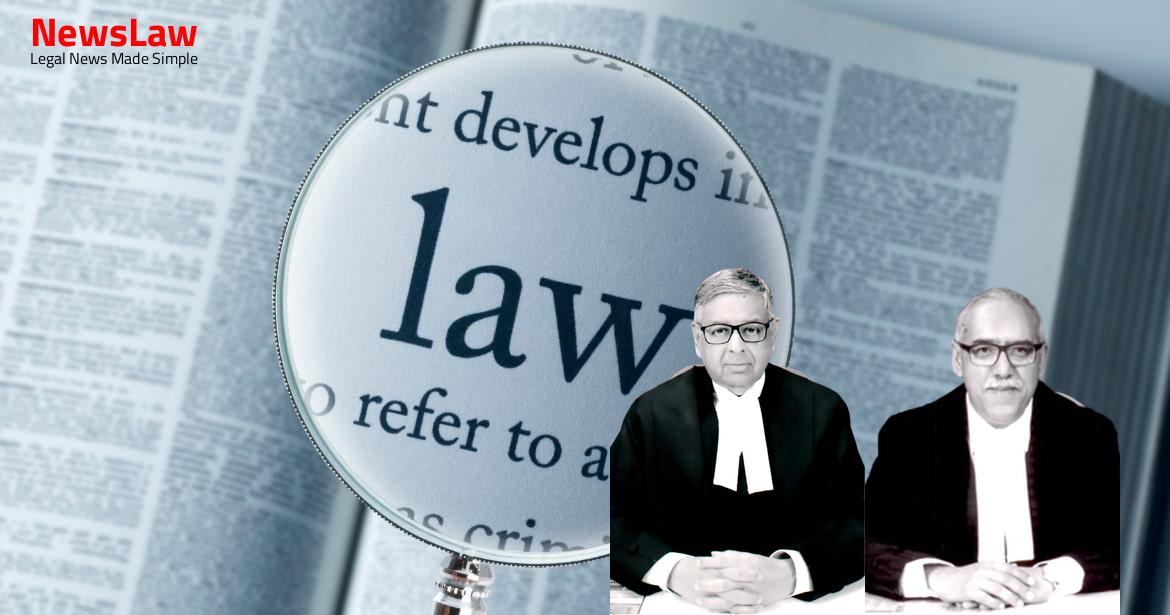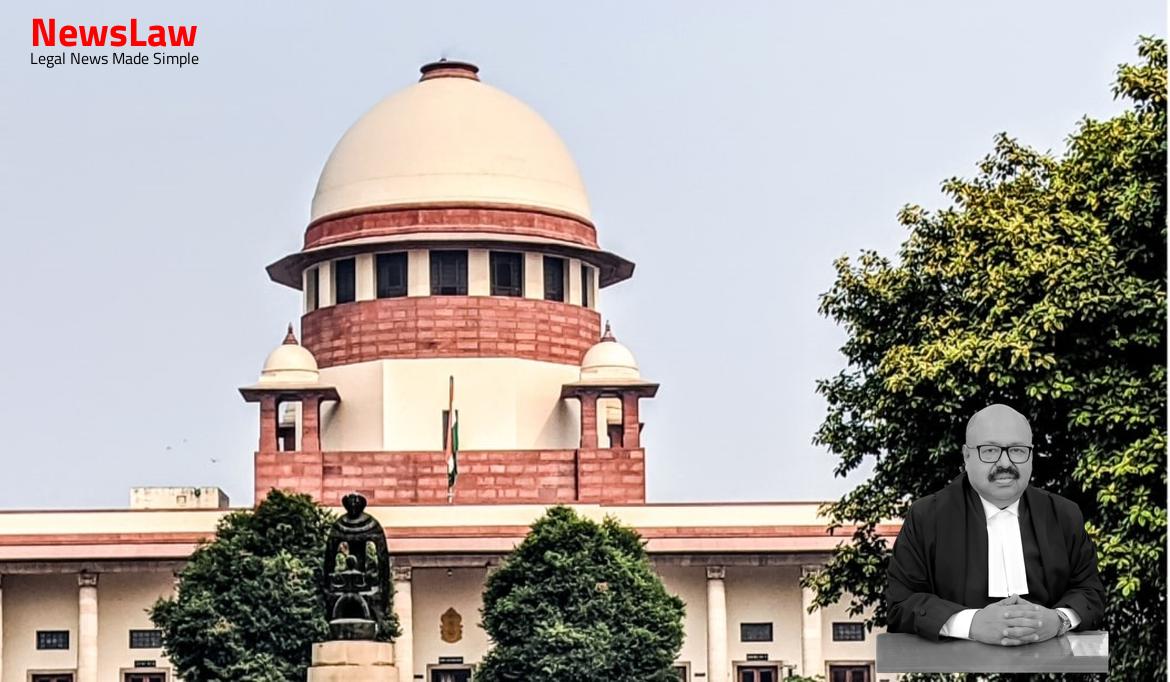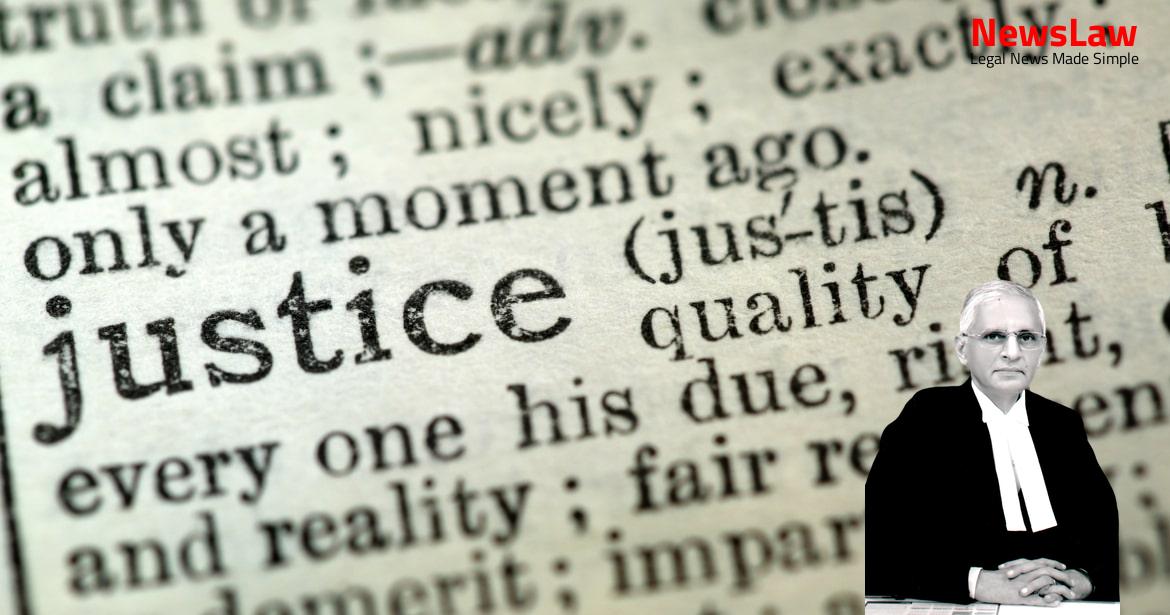In a landmark decision, the High Court has passed judgment on the Meenakshi Dowry Death Case, involving allegations of dowry harassment leading to the tragic demise of Meenakshi. The case saw acquittal and sentencing for various individuals based on detailed evidence and legal considerations. This ruling sets a precedent in addressing dowry-related crimes and ensuring justice for victims like Meenakshi.
Facts
- The High Court acquitted the mother and two brothers of the appellant
- The conviction under Section 306 of the Code by the Trial Court was set aside for the appellant
- No separate sentence was awarded under Section 498-A due to sentence passed against the accused for major offence under Section 304-B
- Conviction of the appellant under Section 306 of the 1860 Code was set aside while other counts were sustained
- Fine of Rs.1,000/- was imposed on each of them on both counts with a direction of six months additional rigorous imprisonment in case of failure to pay the fine
- The Trial Court convicted all four persons based on depositions of PW-1, PW-2, and PW-4, finding them guilty of offences under Sections 304-B, 306, and 498-A of the 1860 Code
- Rigorous imprisonment for 10 years was awarded to each under Section 304-B and four years rigorous imprisonment under Section 306 of the Code
- The deceased victim, Meenakshi, was subjected to taunting for bringing insufficient dowry by her husband and in-laws.
- The father of the deceased lodged an FIR stating that the appellant, along with his family members, tortured Meenakshi for not bringing enough dowry, leading to her suicide by consuming aluminium phosphide.
- The appellant demanded Rs. 1,00,000 for purchasing a vehicle before marriage, and later asked for more money for his clinic.
- The High Court acquitted the accused based on the evidence presented by various witnesses, including relatives and the medical officer who conducted the post-mortem.
Also Read: VVF India Ltd. vs. Employee Union: Wage Revisions & Benefits Case
Analysis
- The consistent stand of the witnesses cannot be overshadowed by a single statement that is not in line with the rest of the deposition.
- Presumption of guilt rests on the accused under Section 113-B of the Indian Evidence Act, once certain factors are proven.
- The appellant attributed the victim’s suicide to depression caused by multiple deaths in her family.
- The only beneficiary of the dowry demand for a car or clinic extension would be the accused husband.
- Strict construction must be applied to penal provisions.
- The question of which accused tortured the victim must be determined based on factual findings.
- The evidence of complainant and other witnesses regarding torture for dowry was deemed reliable by the Trial Court and High Court.
- Parents of the deceased may try to implicate as many in-laws as possible in cases of dowry deaths.
- Inconsistencies in statements regarding the victim’s movements were noted.
- The appellant’s defense regarding lack of evidence for dowry torture was dismissed.
- The lack of corroborating evidence for the victim’s depressive state due to family deaths was mentioned.
- The appellant’s argument of different standards for co-accused was addressed by the High Court.
- Witness testimony regarding taunting by accused persons was discussed.
- A sum of Rs.20,000 was given to the victim before she left for the matrimonial house.
- A demand for money on account of financial stringency, urgent domestic expenses, or purchasing manure does not constitute a demand for dowry as understood in the Dowry Prohibition Act.
- The judgment in Appasaheb case and Vipin Jaiswal case do not state the law correctly in connection to demands for money, property, or valuable security related to the marriage of a woman.
- Any property or valuable security given directly or indirectly at, before, or after the marriage and in connection with the marriage of the parties can be considered dowry.
- There must be a correlation between the giving or taking of property or valuable security and the marriage of the parties for it to constitute dowry.
- The earlier view that seeking financial assistance does not constitute demand for dowry was rejected in the Rajinder Singh case by a three-Judge Bench.
- Anil Kumar, Bimla Wanti, and Atul Mittal were falsely implicated in the case to exaggerate the number of accused.
- Only Jatinder Kumar committed the offenses under Sections 304-B and 498-A of the Indian Penal Code.
- The judgment and order of conviction and sentence were rightly confirmed by the High Court for the appellant.
- The factors found by the High Court for convicting the appellant establish guilt beyond reasonable doubt.
Decision
- The appeal is dismissed.
- The appellant is currently on bail.
- There is no reason to interfere with the judgment and order under appeal.
- The appellant must surrender before the Trial Court within four weeks from the date and serve the remaining sentence.
- Anil Kumar, Bimla Wanti, and Atul Mittal are entitled to acquittal due to benefit of doubt.
- The findings of the trial court regarding the acquittal of the mentioned individuals are affirmed.
- The legality of the acquittal of the co-accused persons is not being tested in this appeal.
- The appellant’s bail bond is cancelled.
Also Read: Legal Analysis of M/S Rajco Steel Enterprises v. Kavita Saraff: The Dynamics of Dishonoured Cheques
Case Title: JATINDER KUMAR Vs. THE STATE OF HARYANA
Case Number: Crl.A. No.-001850-001850 / 2010



